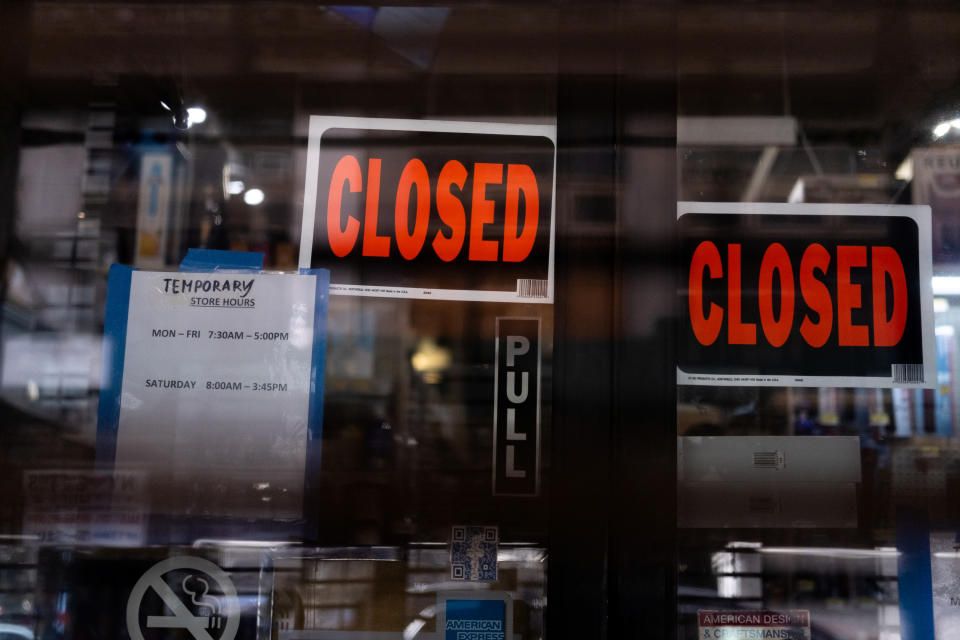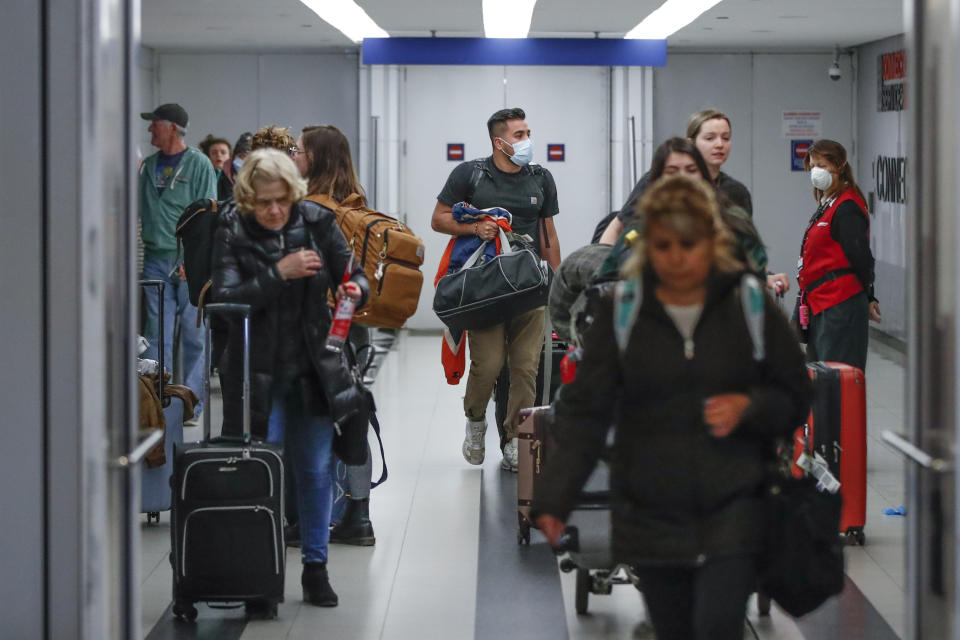The case for shuttering the economy to battle coronavirus
The Federal Reserve has fired its bazooka, cutting short-term interest rates almost to zero and enacting other stimulus measures first adopted during the Great Recession in 2008 as the new coronavirus rattles the economy. It’s probably not enough.
The medical and economic shock caused by the coronavirus has led to a cascading series of school closures, travel disruptions, event cancellations, and office closures. Apple (AAPL), Nike (NKE), Under Armour (UA), and other retailers are closing most or all of their stores, with others sure to follow. School districts are shutting down everywhere. Airports are a disaster, with overseas arrivals huddled for hours in snaking lines that could be models for how to spread disease. And the Centers for Disease Control recommends a ban on all gatherings of 50 or more until mid-May. to Why not just shut the whole country down?
The argument against this might seem to make sense. Coronavirus hasn’t popped up everywhere, so why should smaller towns somewhat inoculated from the global economy freak out like Seattle and New York City? Can’t we just shut down the places most susceptible to the disease and leave everyplace else alone? Why impose economic harm on businesses that could end up untouched by the virus?
The best way to ‘flatten the curve’

But the argument in favor of shutting down the whole U.S. economy for perhaps two weeks, or more, if necessary, is probably stronger. The federal government could take steps to close nonessential businesses while testing to determine whether the virus is dramatically intensifying. Washington couldn’t literally prevent all Americans from leaving their homes, but most business owners would comply. People would mingle far less, reducing the rate of infection for a virus that spreads exponentially without any barriers in place. It might be the best way to “flatten the curve” and get the upper hand against the malevolent bug.
Analyst Ed Mills of Raymond James posits four scenarios for where we’re headed from here, including a “stop everything” situation in which all businesses that can shut down for two weeks do so. If that happens, Mills sees the total number of U.S. infections staying below 500,000, with a turnaround coming by late April. The economic harm would be substantial, but this measure could be an overwhelming force that defeats the virus relatively quickly. Congress would be able to repair some of the economic damage through fiscal stimulus programs.
Under the other three Raymond James scenarios, Washington continues to take an incremental approach. There are more infections and deaths, persisting through the spring, summer or fall, depending on the aggressiveness of government action. Consumers remain confused and many people don’t take the virus all that seriously, since the government doesn’t seem to be making that big a deal out of it.

On paper, many Americans would probably favor an all-out war that’s relatively short to a drawn-out conflict that ultimately exacts a higher overall toll. It’s the 42-day Persian Gulf war of 1991 versus the more than decade-long Vietnam War of the 1960s and ‘70s. Except shutting down all nonessential business in the United States would take a courageous president willing to deal with bitter criticism from interests who feel they’re being harmed unnecessarily to combat a virus some Americans will never see any tangible evidence of.
Does President Trump have the guts? His initial response to the virus was to underplay it and insist it would be gone before long. He was wrong about that. He has a chance now to rectify that with bold action. Like all leaders who find themselves managing a crisis, Trump is going to infuriate somebody, whether it’s those who think he’s doing too little or those who insist he’s doing too much. He has a short window of time to act before the only possible answer is that he’s doing too little.
Rick Newman is the author of four books, including “Rebounders: How Winners Pivot from Setback to Success.” Follow him on Twitter: @rickjnewman. Confidential tip line: rickjnewman@yahoo.com. Encrypted communication available. Click here to get Rick’s stories by email.
Read more:
Read the latest financial and business news from Yahoo Finance
Follow Yahoo Finance on Twitter, Facebook, Instagram, Flipboard, SmartNews, LinkedIn, YouTube, and reddit.

